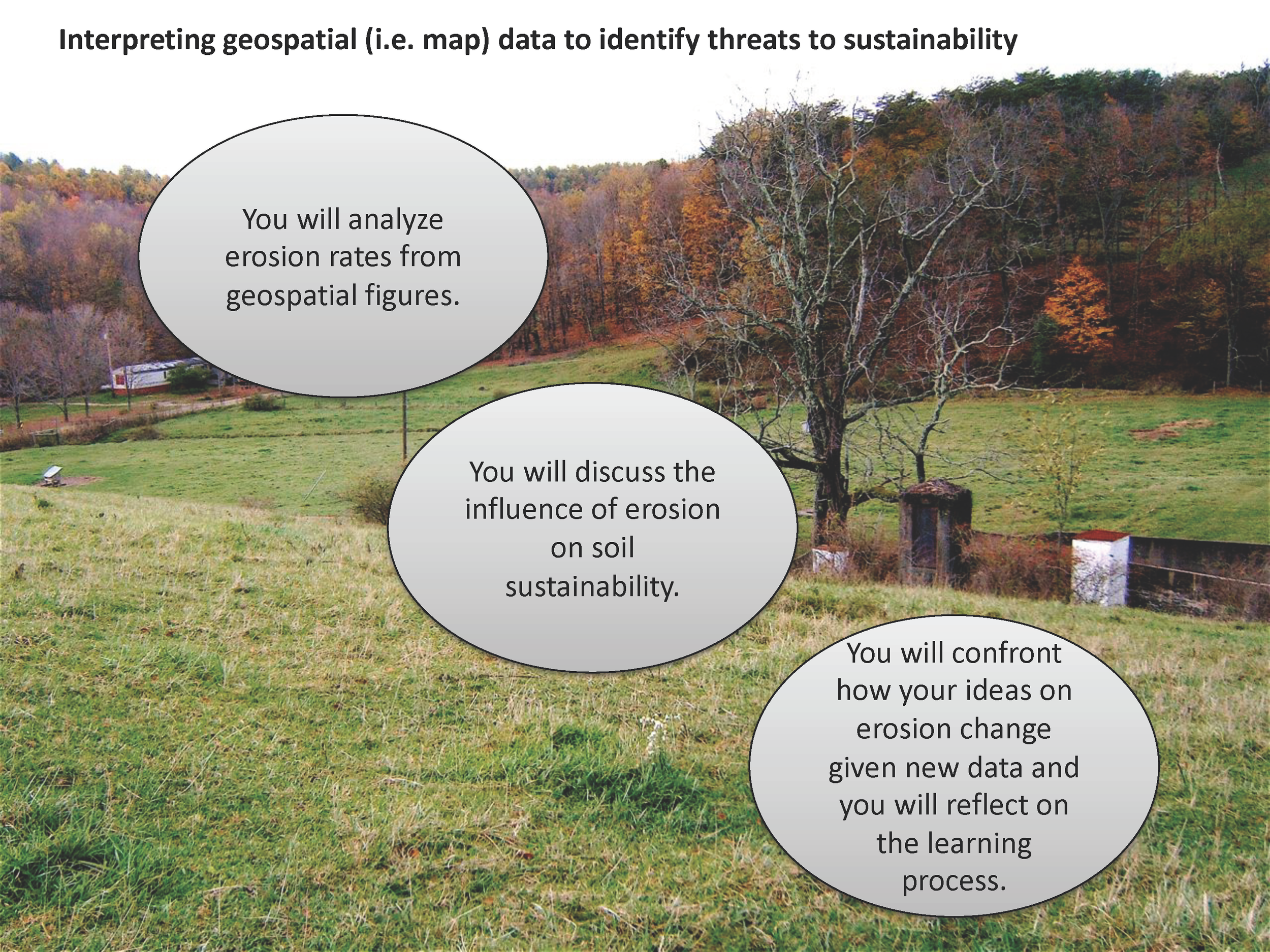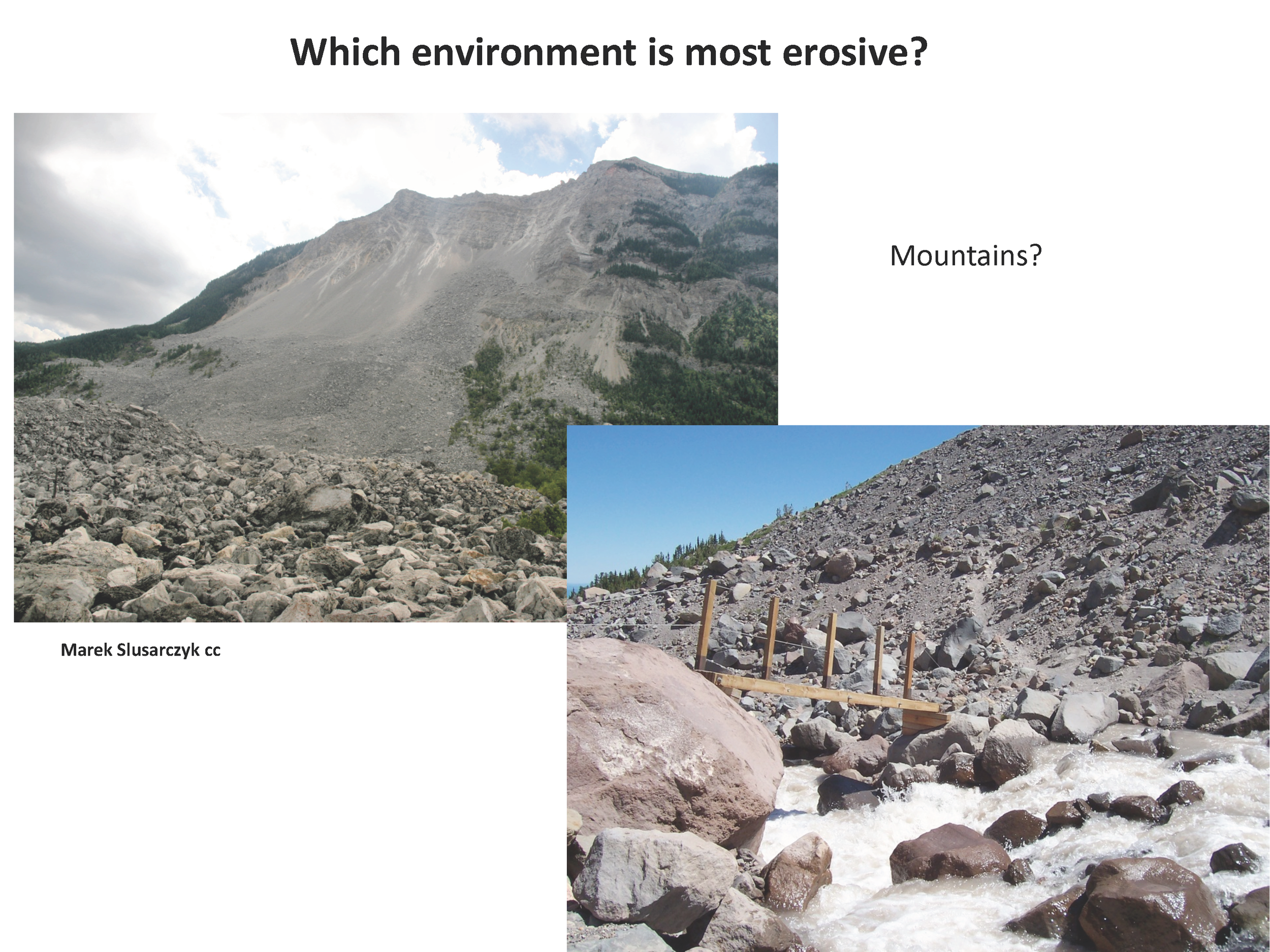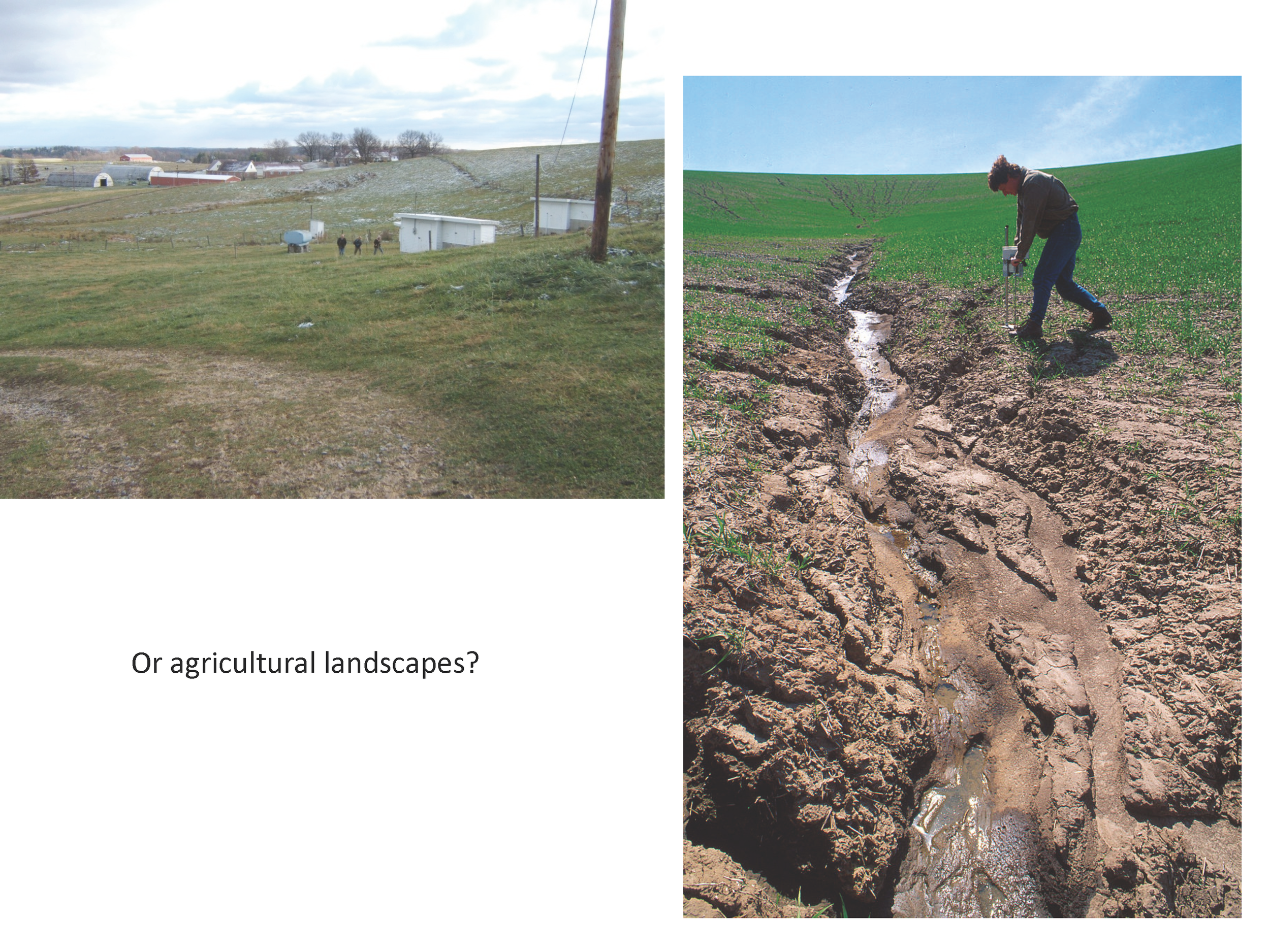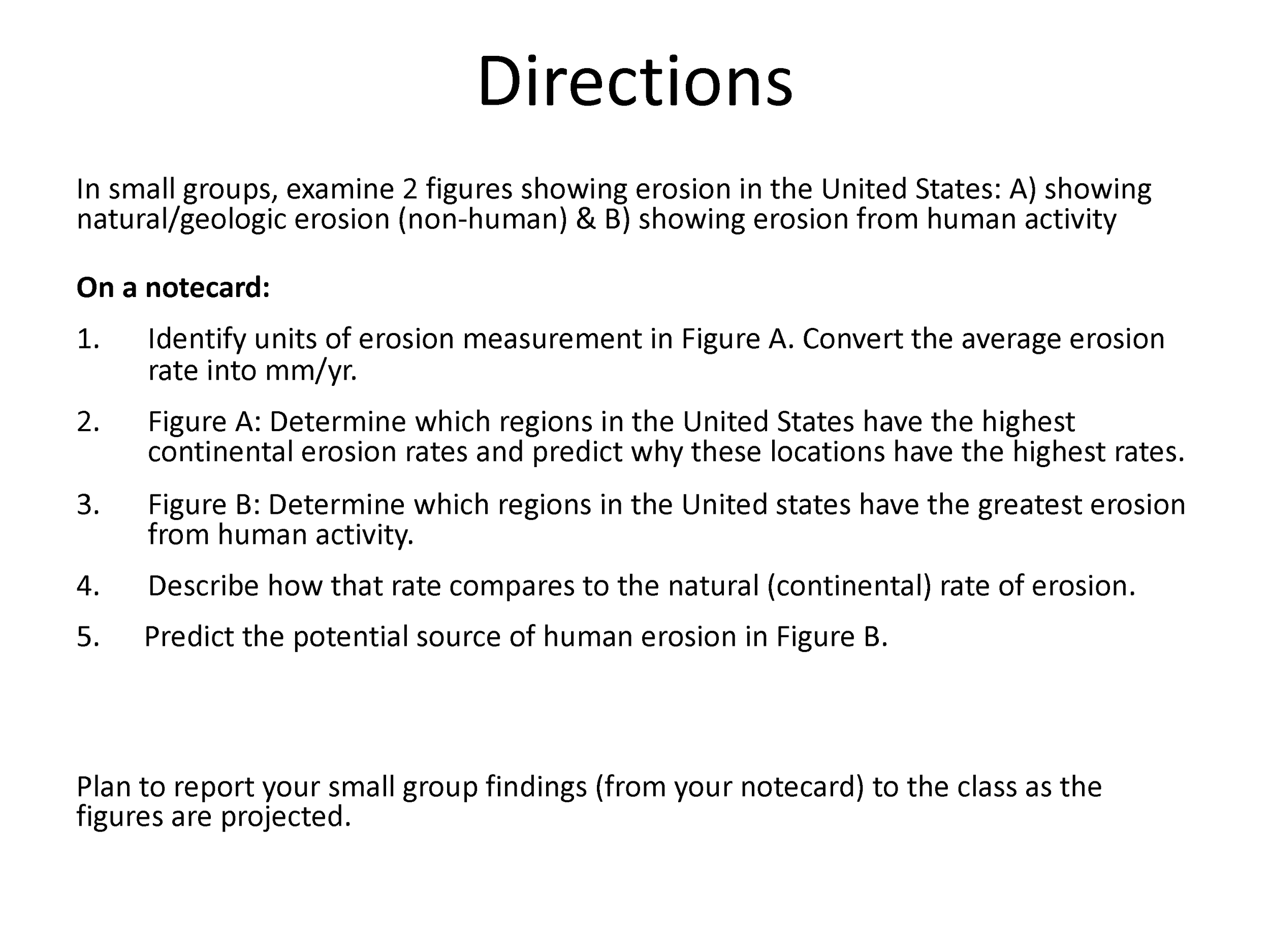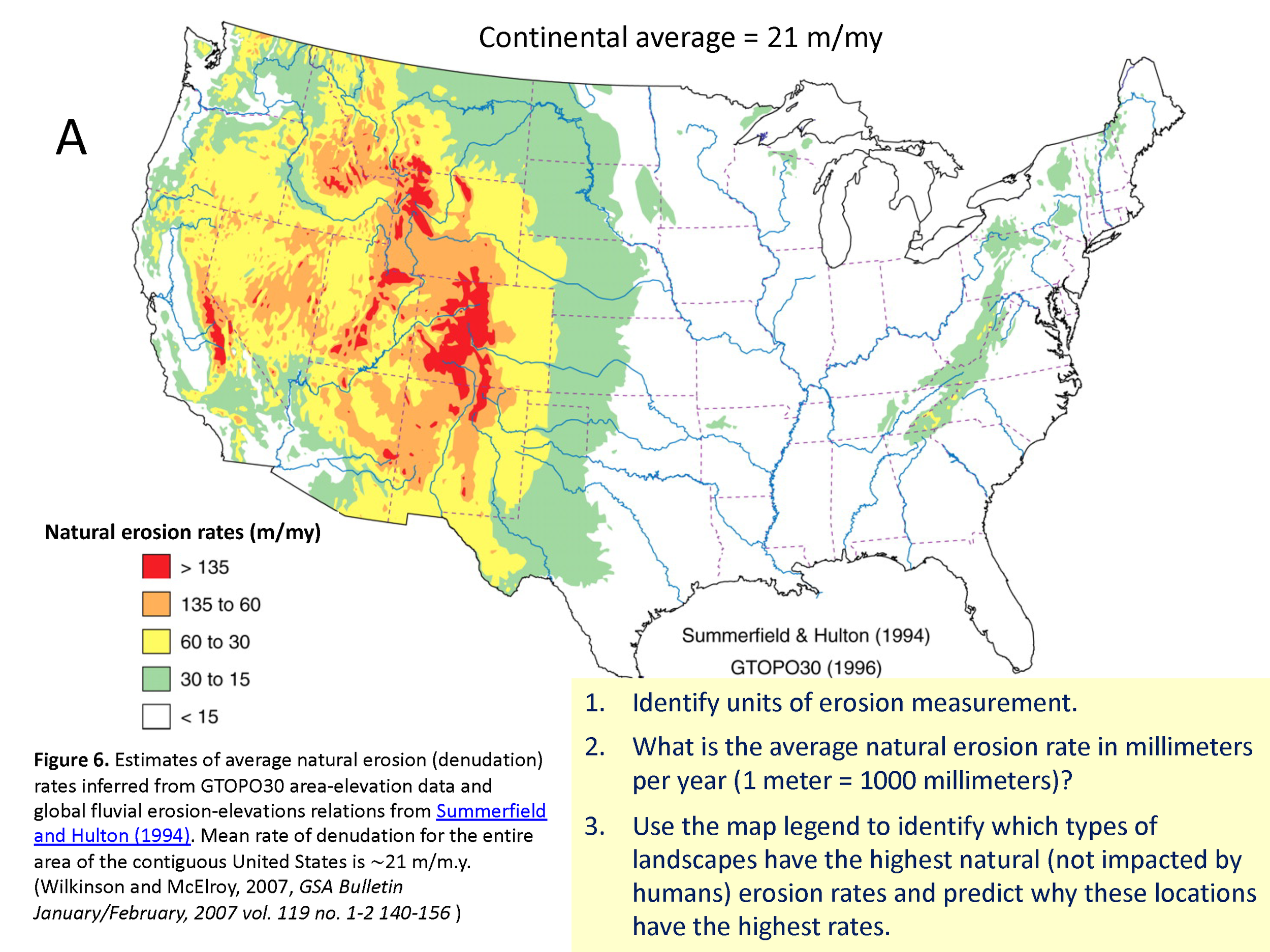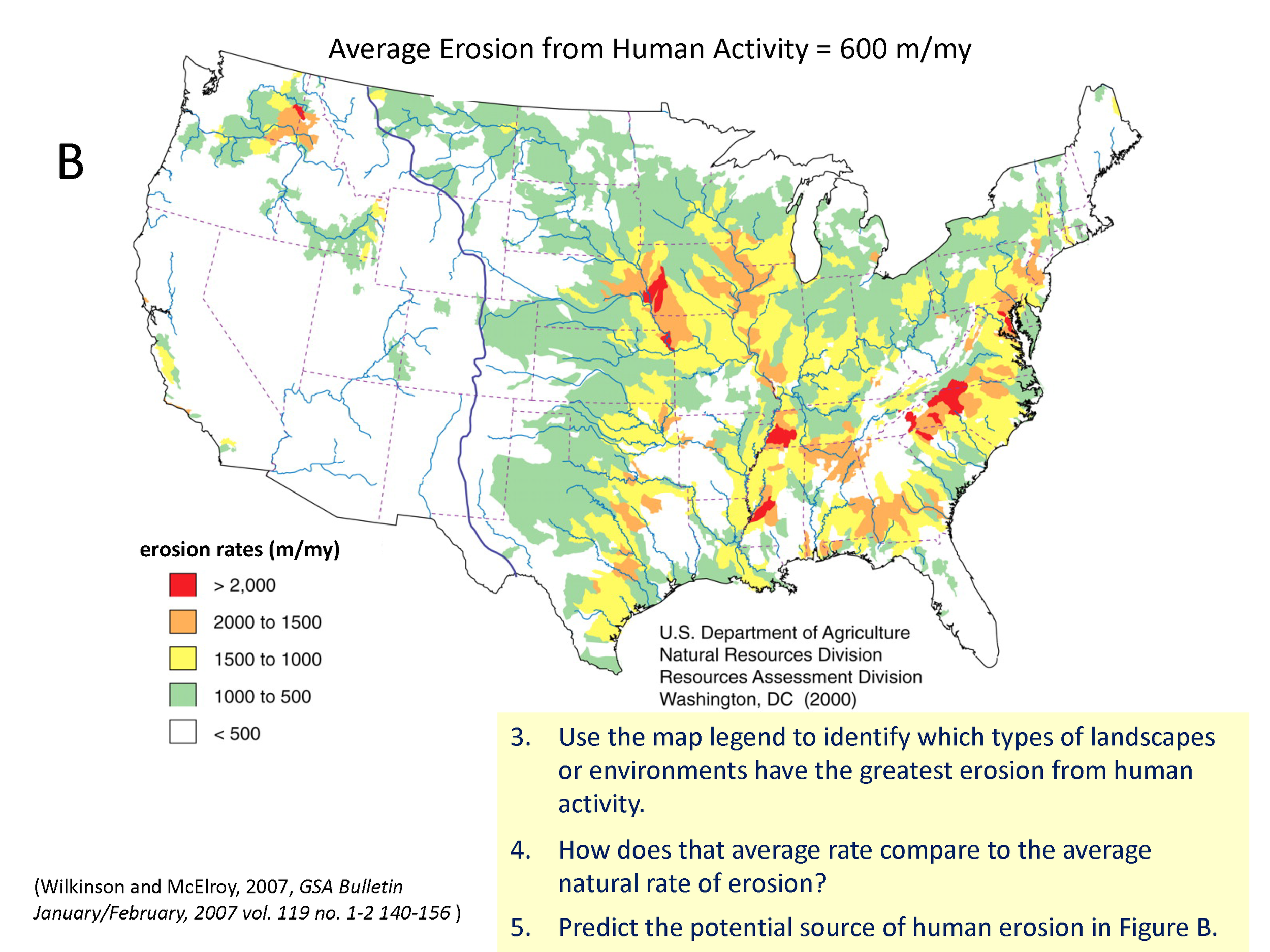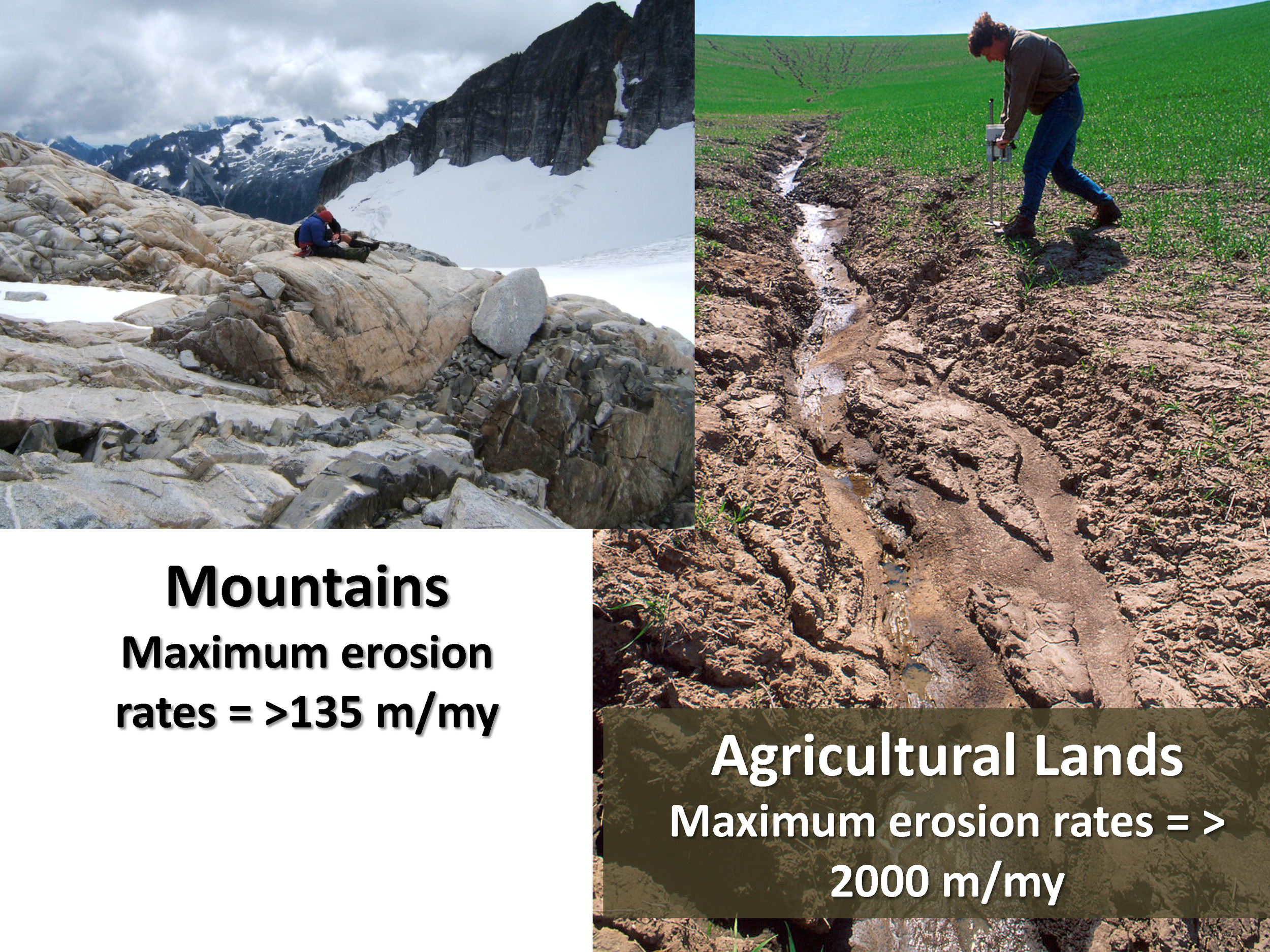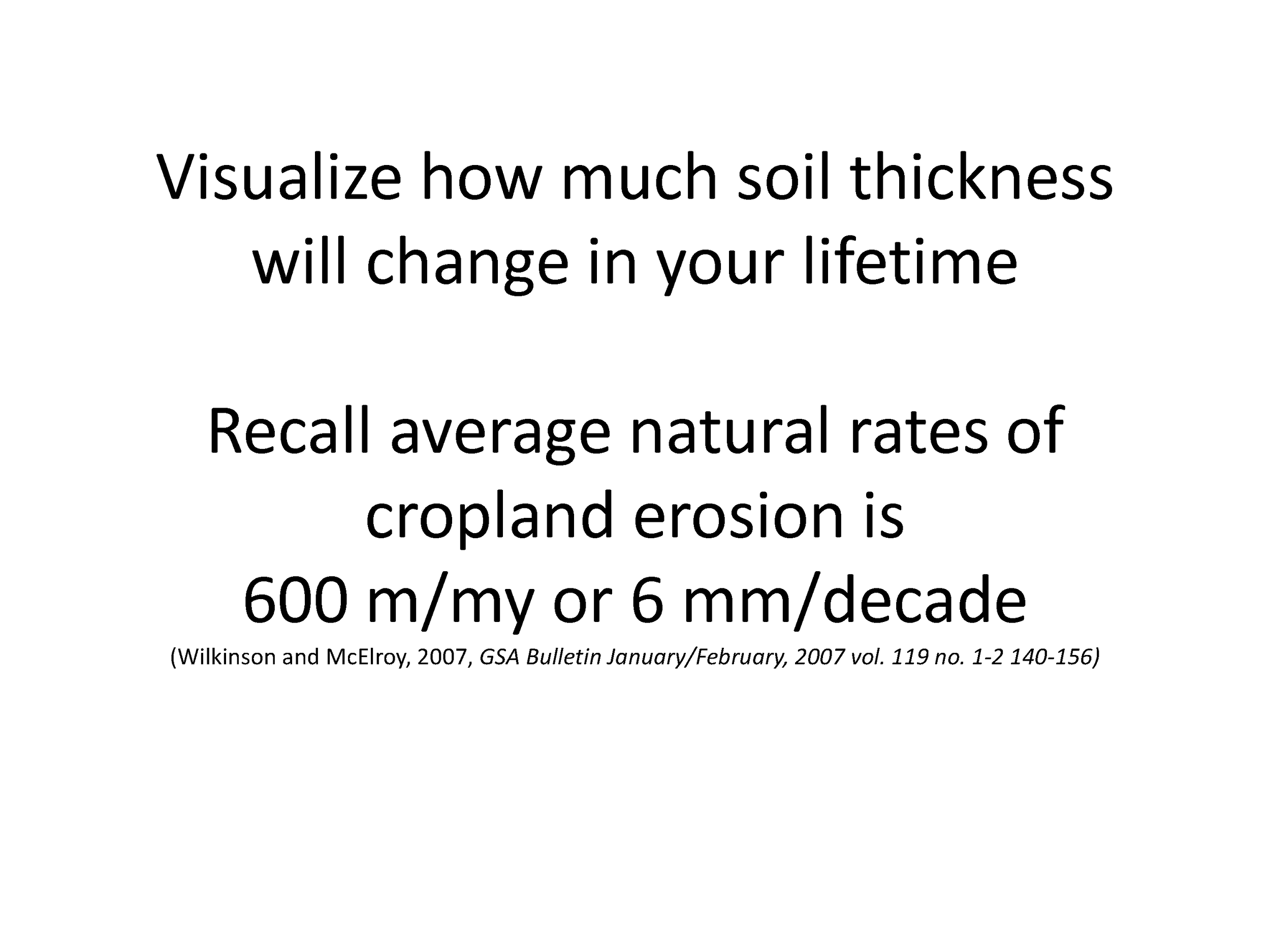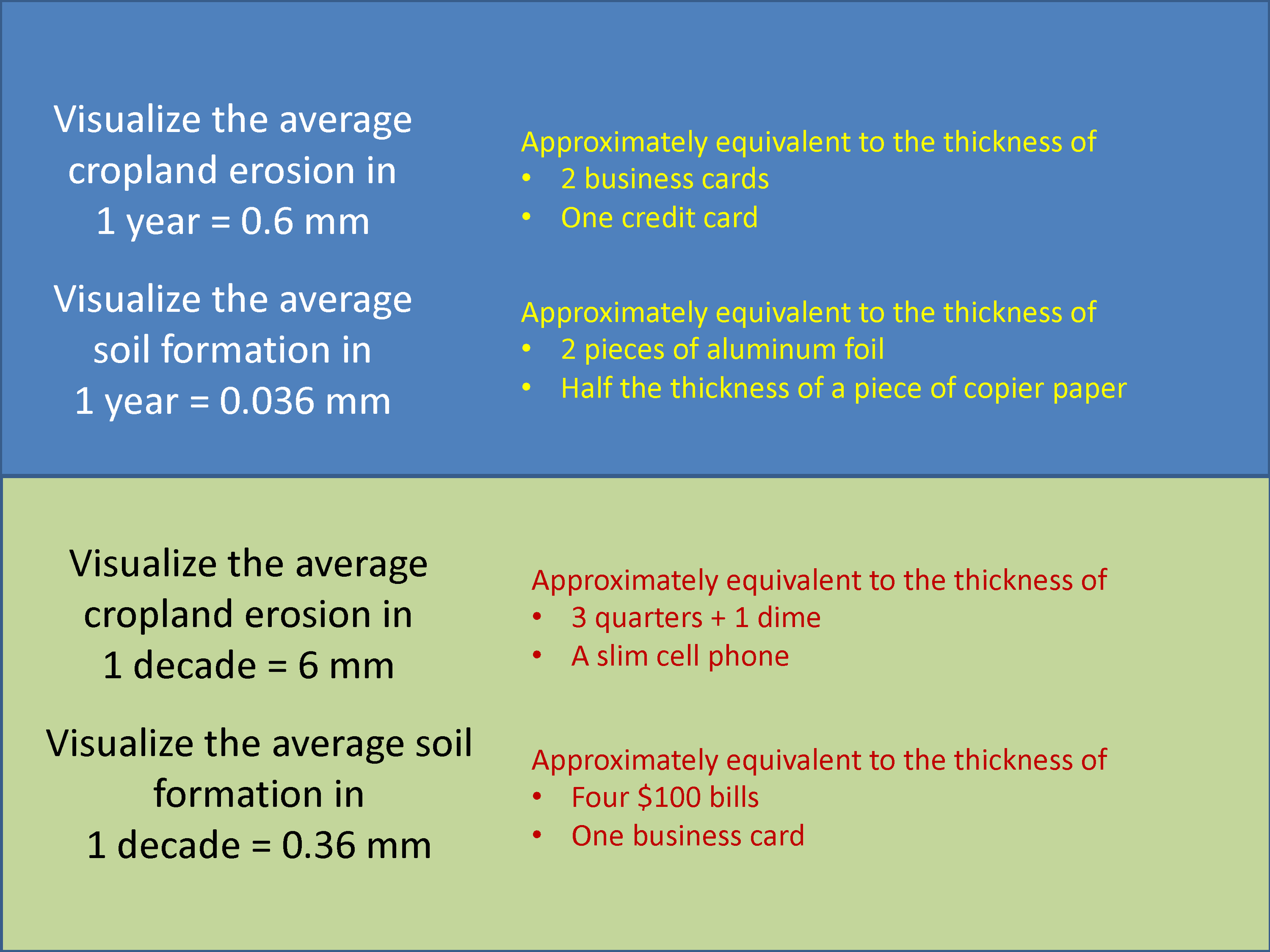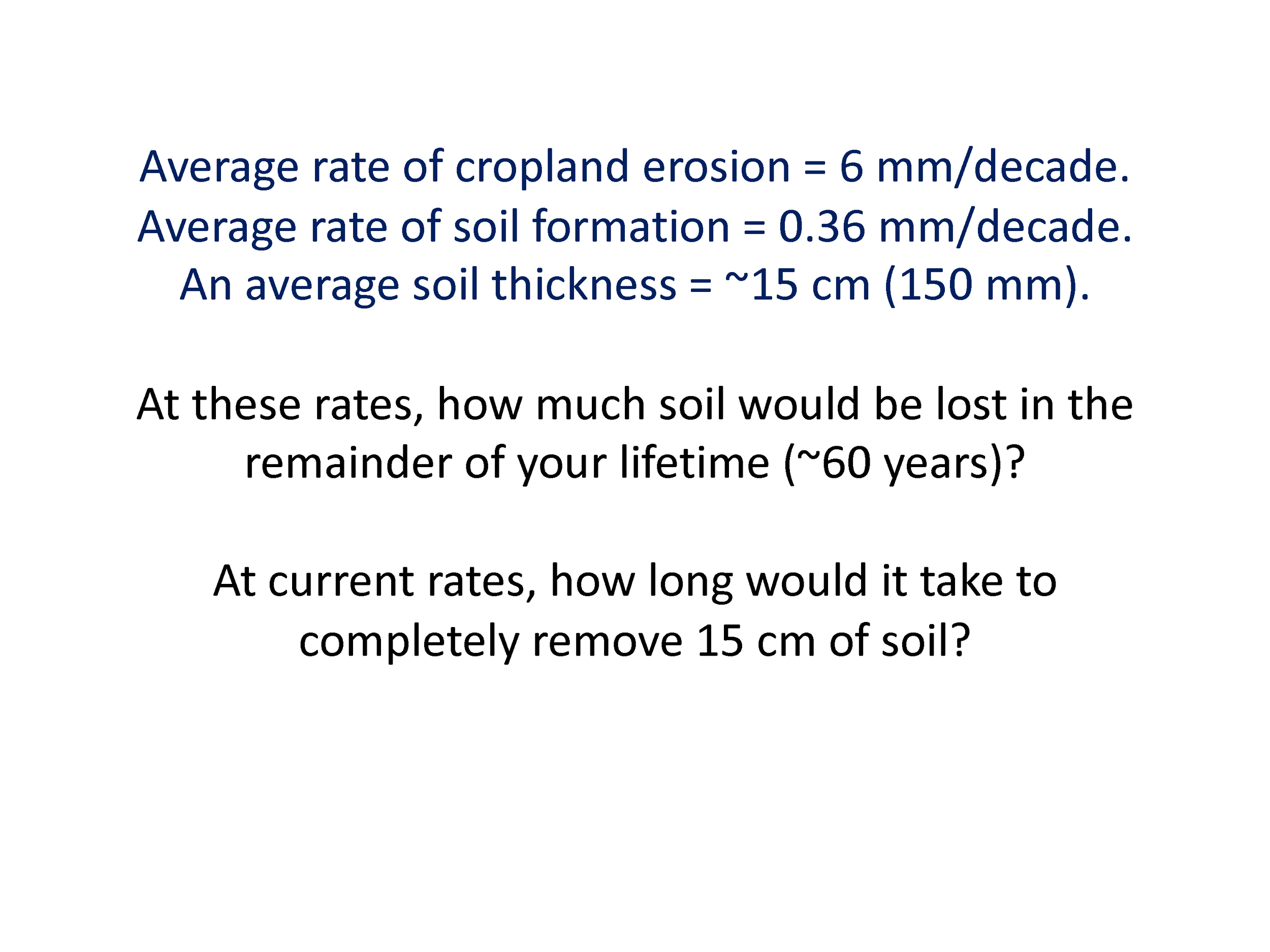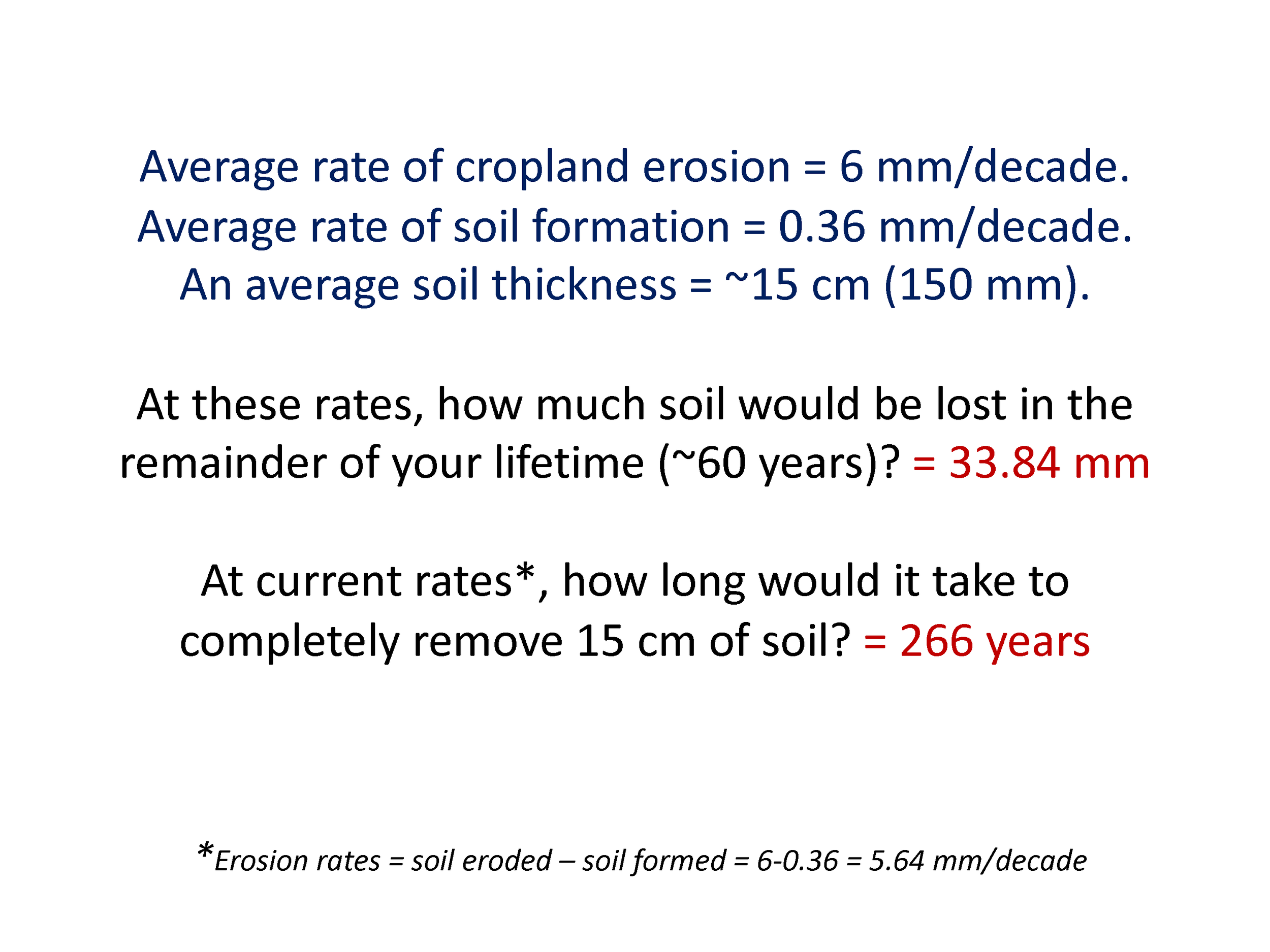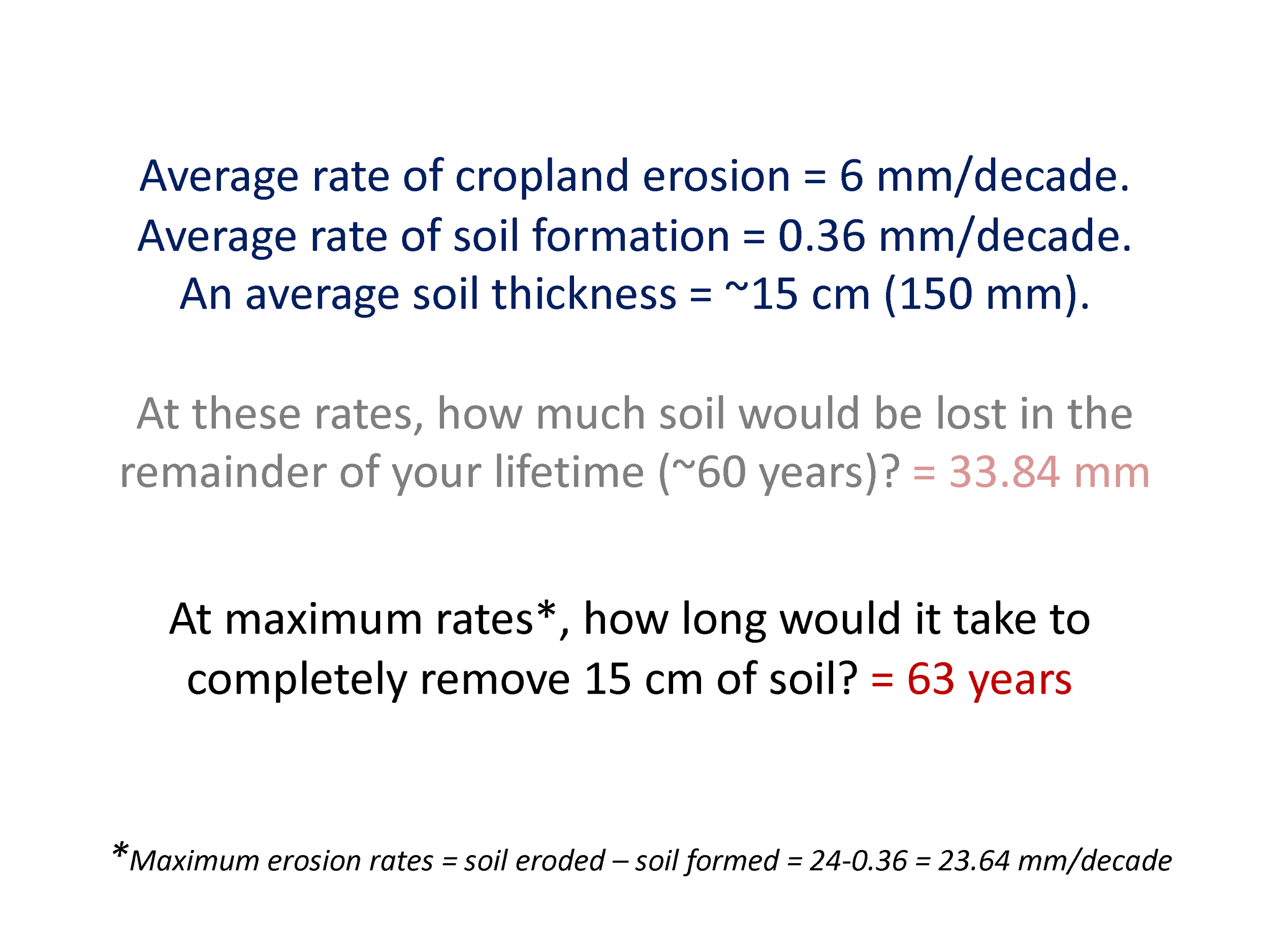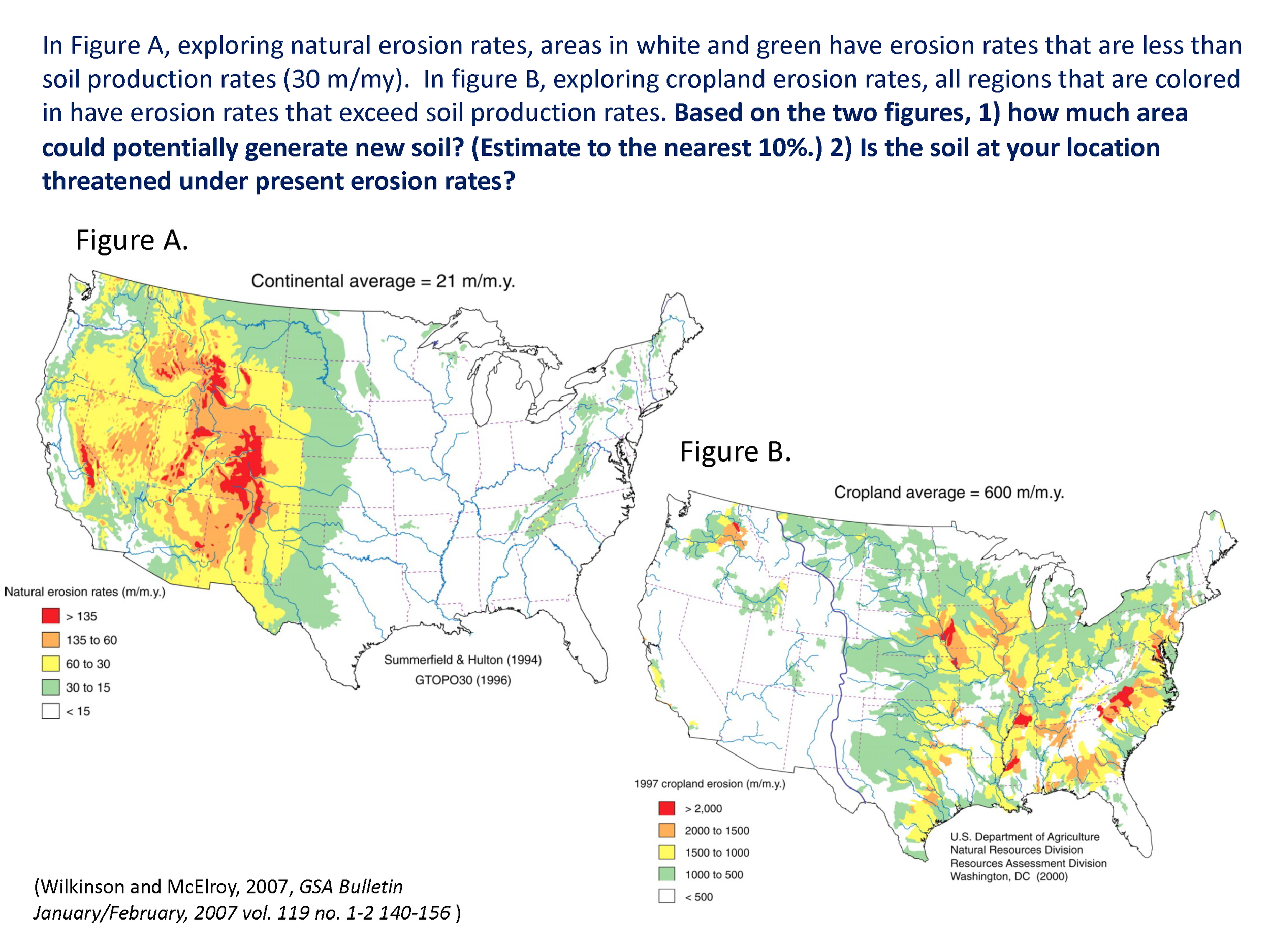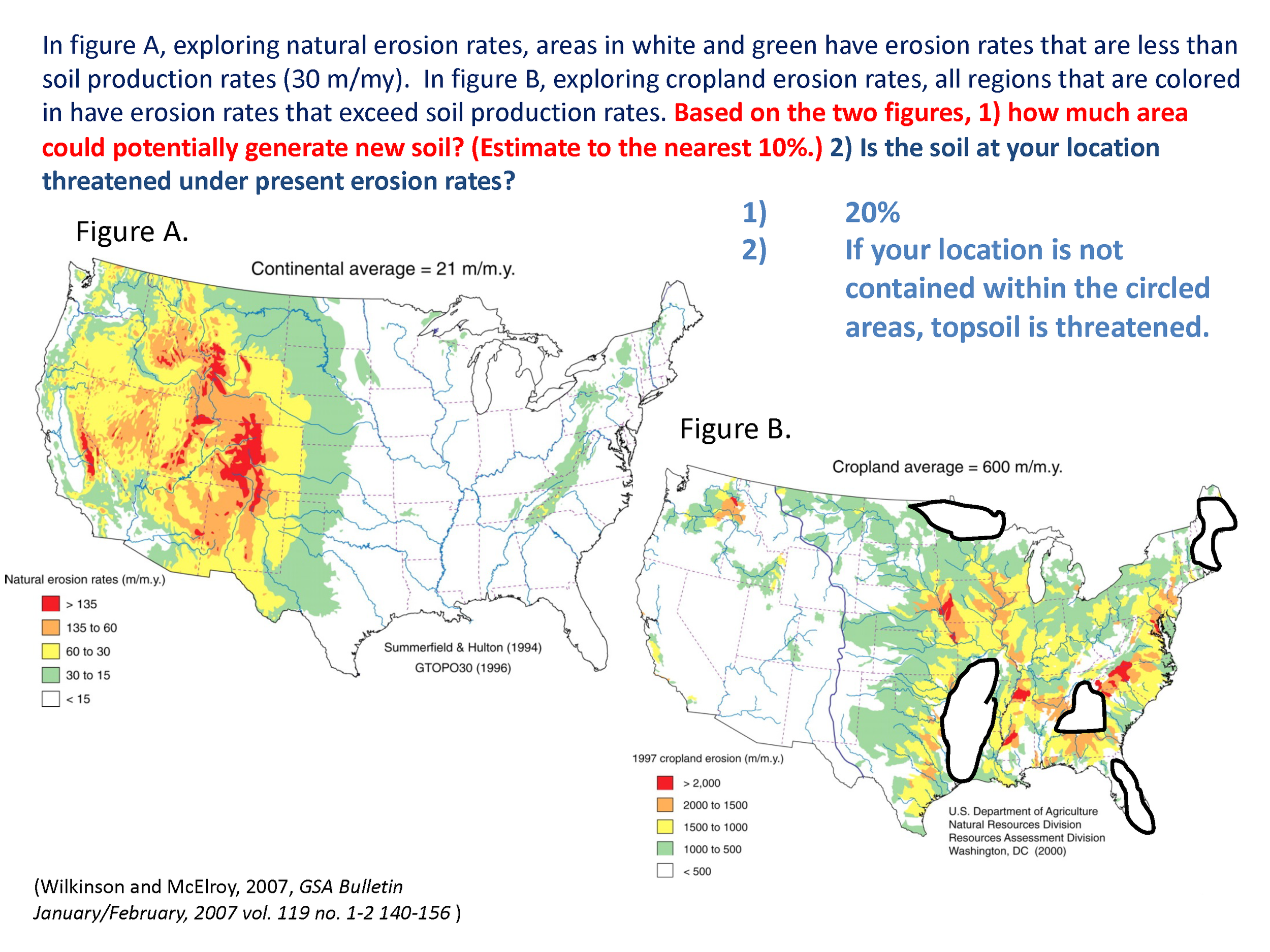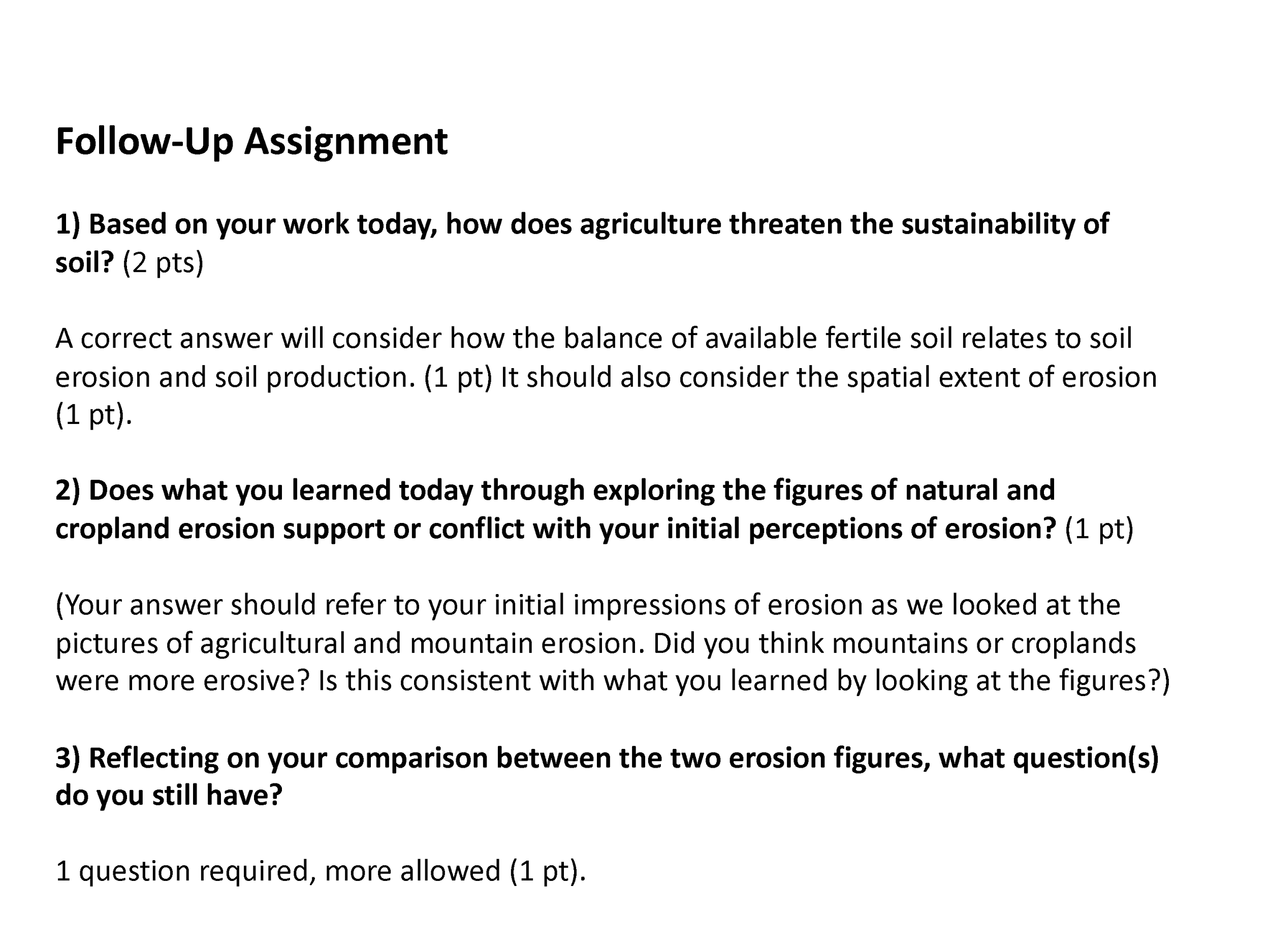Exemplar Type: MODULE
Title: Natural & Agricultural Erosion Rates
Grades: Undergraduate
Discipline: Science
Submitted By: Sarah Fortner
Courtesy Of: InTeGrate at Carleton College
Summary Students will identify their perceptions of erosion by examining images of mountain and agricultural landscapes and discussing which environment is more erosive. They will use geospatial figures to compare erosion rates associated with both natural and agricultural landscapes in the United States. Students will then consider how the presence of agriculture has reduced the areas of soil production, replacing them with regions of soil loss. They will reflect on the negative impact of agricultural erosion on soil sustainability.
BENCHMARKS REPRESENTED IN THIS EXEMPLAR
Big Ideas
Places are alive, unique and evolving. If humans want to flourish over time, our relationships with the places in which we live must be mutually beneficial
A sustainable solution solves more than one problem at a time and minimizes the creation of new problems
The changes to the Earth’s surface environments made by human activity are causing unintended consequences on the health and well-being of human and other life on Earth (proposed Anthropocene Epoch)
Applied Knowledge and Actions
Healthy Commons
System Dynamics and Change
Responsible Local and Global Citizenship
Higher Order Thinking Skills
Complex: Critical Thinking
Complex: [Living] Systems Thinking
Mindful: Metacognition
Dispositions
Resilience
Place/Community Conscious
Responsible
Applications and Actions
Contribute to the regenerative capacity of the systems upon which we depend
Design for whole systems integrity with ecological principles and physical laws in mind
Envision, strategize and plan



